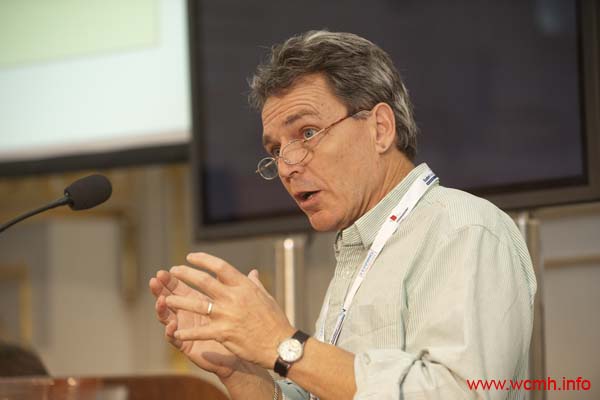The Men’s Health Forum has launched a new report asking why men are more likely to be diagnosed with and to die from nearly all common cancers.
Once breast cancer and cancers that can only affect one sex or the other are taken out of the figures – men are then 67% more likely to die.
The MHF says that health services must act to deliver awareness and screening that targets men and saves lives.
The report, ‘Men and Cancer: Saving Lives’, launched at the Britain Against Cancer conference this week, collates cancer experts’ presentations and opinion from a seminar earlier this year. 
Concentrate on improving men’s lifestyles and improving symptom awareness
David Wilkins, who wrote the report for the Forum said: 'Most of the explanations for men’s high rates of death from cancer are to do with lifestyle differences between the sexes. However, we cannot precisely quantify how much difference that makes in any one cancer.'
'A logical response is to concentrate on improving men’s lifestyles and improving symptom awareness so that men seek help earlier. This is particularly important for those men in the poorest communities where rates are at their highest and so are gender differences.'
Martin Tod, the MHF's chief executive added: 'We want more targeted health information to help men avoid cancer and more targeted screening to help men catch cancer earlier if they do get it – particularly with those men who go to GPs the least. And where there’s a link between cancer and infection – such as with HPV – we’d like to see boys getting vaccinated.
We also want to see more research. There are a lot of things that men can do now to cut their risk of cancer – but there are also too many things about men and cancer that are not yet properly understood.'
Experts concluded that there are almost no known biological explanations for higher rates of cancer in men. That does not mean there never will be any biological explanations - 35% of cancers still have no known cause, so some may have biological explanations. That 35% is likely to remain unexplained for some time to come.
Read the full Men and Cancer: Saving Lives report.
The policy ideas that had the most support among the audience at the seminar are:
- That a wider range of cancer data should be collected. That these data should routinely be published in gender-disaggregated form and made more easily accessible to policy makers and practitioners.
- That GP surgeries and other primary care providers should be required to make more effort to reach out to men, especially those men in particular sub-groups who are known to be poorer users of services.
- That the HPV vaccination programme should be extended to include boys.
- That there should be greater regulation of lifestyle-related risk factors such as smoking, alcohol intake and unhealthy foodstuffs.
- That we should incentivise health providers to improve services for men and that we should consider health improvement interventions that incentivise men to participate.
